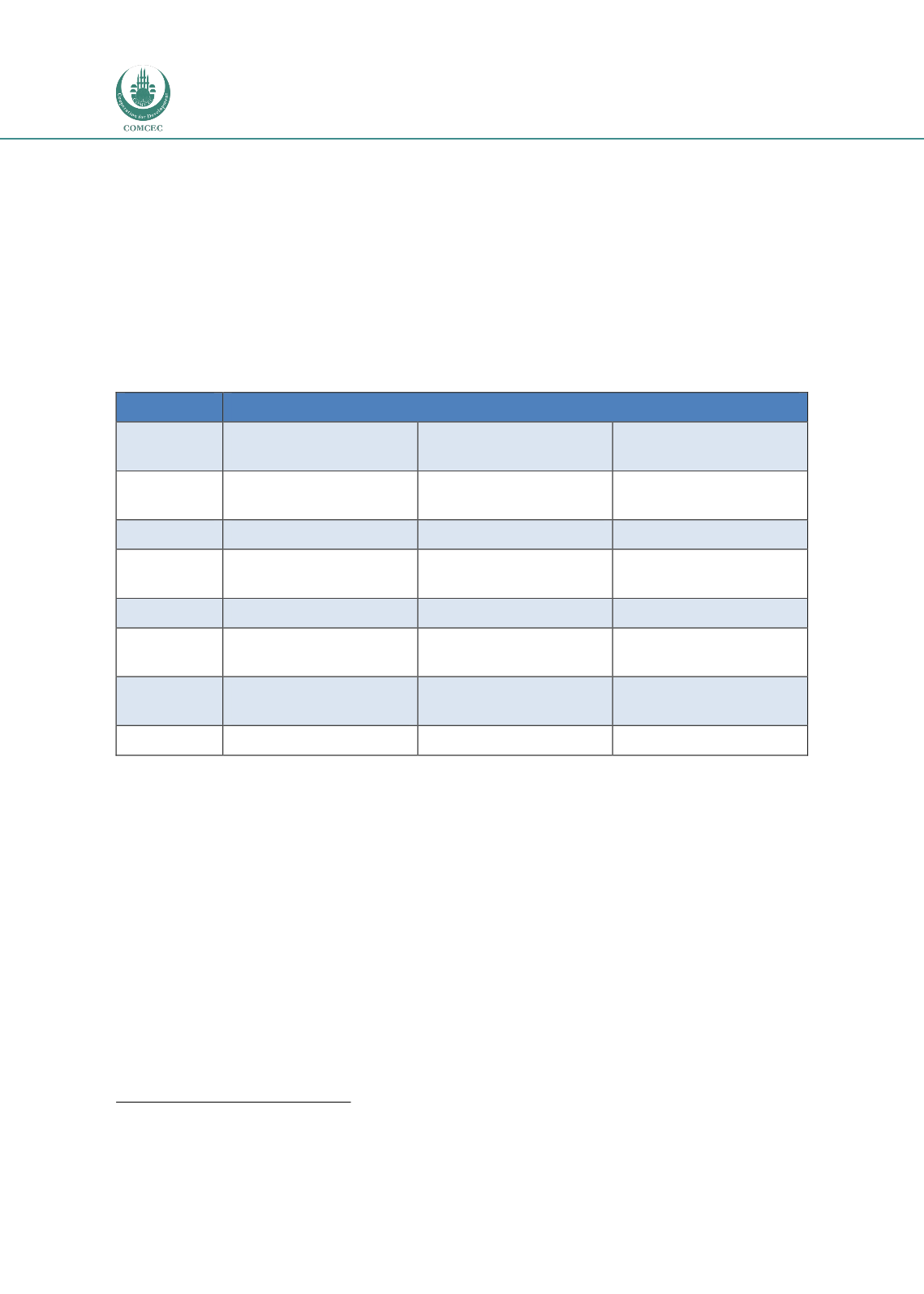

Promoting Agricultural Value Chains:
In the OIC Member Countries
58
The lack of adequate political support in terms of R&D, extension and agricultural innovation
thus threatens the long-term viability of agricultural production and limits opportunities to
improve production efficiency and product quality over the short and medium term to
increase the value added by producers.
OIC Member Countries also lag behind when it comes to the adoption of GM crops compared to
other regions of the world. Thus far, only 8 out of 57 OIC Member Countries have
commercialised the use of biotechnology in agriculture (see
Table 4-3). In particular, Malaysia
has recently been at the forefront in the adoption of biotechnology with the proclaimed goal of
establishing itself as a biotech player at the global level.
Table 4-3 Commercialisation of GM crops in OIC Member Countries
Country
GM crops
Bangladesh
Eggplant (1
event/variety)
Burkina
Faso
Cotton (1 event/variety)
Egypt
Maize (1 event/variety)
Indonesia
Maize (7
events/varieties)
Sugarcane (3
events/varieties)
Soybean (2
events/varieties)
Iran
3
Rice (1 event/variety)
Malaysia
Carnation (8
events/varieties)
Maize (8
events/varieties)
Soybean (6
events/varieties)
Pakistan
Cotton (2
events/varieties)
Sudan
Cotton (1 event/variety)
Source: ISAAA GM Approval Database, 2015
The reasons for the slow adoption of GM crops can be found in the lack of trained scientists,
inadequate biosafety frameworks and weak political support. Debates and public concerns
about the Halal status of GM crops also play an important role. As many OIC countries are net
importers of food, political leadership in many OIC countries has recently recognised the
importance of biotechnology to meet food demands and promote economic growth. A high
level meeting in the context of the OIC in 2011 established a general political agreement that
biotechnology should be promoted by establishing regulatory frameworks and enabling
infrastructure for the application and commercialisation of biotechnology (Stephensons &
Arujanan, 2011).
3
Iran approved GM rice commercialisation in 2004 but then put a halt on cultivation when the government changed. Only in
the past two years has the Iranian Government been working on establishing a legal framework to facilitate the
commercialisation of GM crops. In June 2015, Iran announced that it had developed its first GM cotton variety.

















